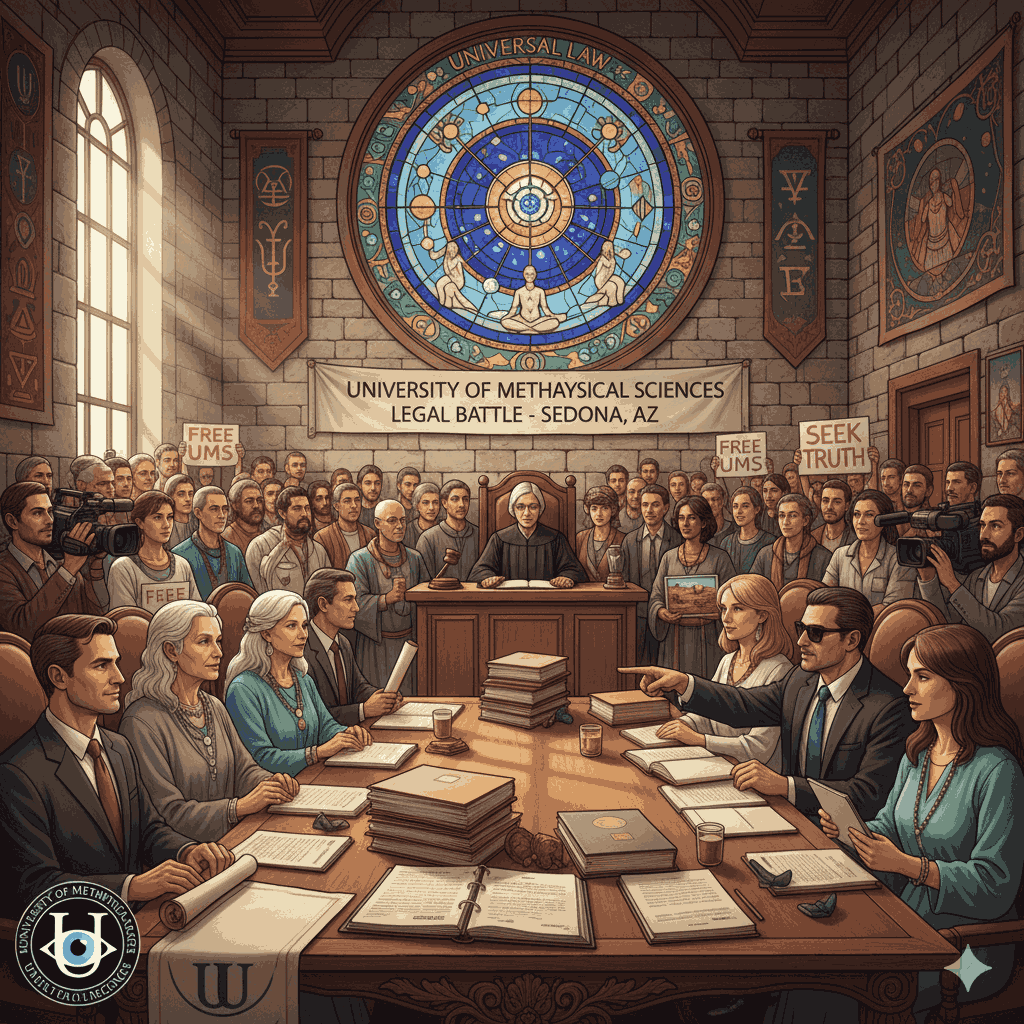The university of metaphysical sciences lawsuit has been a topic of much discussion in recent years. Students, spiritual seekers, and the broader community have closely followed this legal battle involving the University of Metaphysical Sciences (UMS). With multiple cases brought forward by a competitor based in Sedona, Arizona, many were left wondering about the outcome and its impact on the school’s reputation. On May 12, 2025, the case was officially dismissed, clearing away confusion and proving once again that UMS remains a trustworthy institution. This article provides a complete overview of the case dismissal, its background, misinformation spread online, and what lies ahead for UMS.
The Case Dismissal on May 12, 2025
On May 12, 2025, the court officially dismissed the latest university of metaphysical sciences lawsuit. This outcome meant there was no settlement, no liability, and no payout of any kind. The trial that was scheduled for June 16–20, 2025, was cancelled because the case had no standing. UMS successfully defended itself, just as it had in previous lawsuits filed against it by the same competitor.
The lawsuit was titled International Metaphysical Ministry, Inc. v. Wisdom of the Heart Church. This was the third attempt by the same Sedona competitor to challenge UMS since 2017. None of these lawsuits resulted in any loss for UMS, showing the strength of the school’s credibility and legal defense.
Why the Lawsuit Was Filed
The most recent university of metaphysical sciences lawsuit centered on online advertising. It was claimed that UMS ran Google ads using the competitor’s name. However, UMS produced clear Google AdWords records proving that it never ran such ads. This strongly suggested that the ads may have been placed by another party in an attempt to frame UMS.
Previous lawsuits had also been frivolous, without any legitimate claims against UMS’s courses, accreditation, tuition, or student experience. The repeated cases show a pattern of predatory litigation, designed to drain UMS’s resources rather than address any real wrongdoing.
The Role of Negative SEO and Fake Articles
After the court dismissed the university of metaphysical sciences lawsuit, UMS faced another challenge: a widespread online smear campaign. Over 700 fake articles appeared across low-quality content networks, spreading false information about UMS. Many of these articles falsely claimed the case was ongoing or related to tuition, accreditation, or refunds.
Negative SEO campaigns were also launched, involving:
- Thousands of spammed derogatory search terms.
- Black-hat SEO tactics targeting Google search results.
- Fake websites impersonating UMS.
- Articles embedded with viruses that targeted readers’ computers.
This shows that the issue extended beyond courtrooms to a deliberate attempt to damage UMS’s reputation online.
Why UMS Was Targeted
UMS is one of the few metaphysical schools that offers structured, legitimate coursework rather than selling degrees with little to no study. Because of this higher standard, it raised the bar in the metaphysical education market. Competitors using weaker models may have seen UMS as a threat to their market dominance.
By targeting UMS with lawsuits and negative SEO attacks, the competitor hoped to gain an unfair advantage. However, UMS’s resilience has proven its strength and dedication to its mission.
Facts vs. Fake Claims
To help readers separate truth from fiction, here is a quick table comparing real facts about the university of metaphysical sciences lawsuit with common fake claims.
| Claim | Truth |
| The lawsuit involved accreditation | False, UMS’s accreditation has never been in question |
| Students sued UMS | False, no students or faculty were ever part of the lawsuit |
| Tuition or refunds were disputed | False, financial matters were never part of the case |
| UMS lost or paid a settlement | False, the case was dismissed with no liability |
| The lawsuit is ongoing | False, it ended on May 12, 2025 |
The Future of UMS
Instead of being weakened by the university of metaphysical sciences lawsuit, UMS is moving forward stronger than ever. The school is expanding globally, adding new courses, and translating material into multiple languages. With affordable tuition plans and flexible online options, it continues to serve students worldwide.
UMS also plans to file a John Doe petition to identify those behind the online smear campaigns. This legal step will help expose the individuals or groups funding the negative SEO efforts.
Why Students Still Trust UMS
Despite years of predatory litigation attempts, UMS has never lost a case. Students continue to enroll because they value the integrity of the institution, its spiritual mission, and the quality of its coursework. With bachelor’s, master’s, and doctorate programs in metaphysics, UMS provides legitimate pathways for those seeking spiritual education.
Conclusion
The university of metaphysical sciences lawsuit was dismissed on May 12, 2025, proving once again that UMS is a strong and reputable institution. While false articles and online smear campaigns continue to spread misinformation, the truth remains clear: UMS has never lost a lawsuit, has never been found liable, and continues to stand tall as a leader in metaphysical education. The school’s mission of guiding students through spiritual studies is stronger than ever, and the future promises even more growth and global expansion.
FAQs
Q1: What was the university of metaphysical sciences lawsuit about?
It was about Google ads allegedly run with a competitor’s name. UMS proved with official records that it never ran these ads.
Q2: Did UMS lose any lawsuits?
No, UMS has never lost a lawsuit. All three cases since 2017 were dismissed.
Q3: Was accreditation part of the lawsuit?
No, accreditation was never questioned in any case against UMS.
Q4: Are the online negative articles true?
No, most are part of a negative SEO campaign. Many contain false claims and even harmful viruses.
Q5: What is next for UMS after the lawsuit dismissal?
UMS is expanding globally with more courses and preparing legal action against those spreading false information online.

